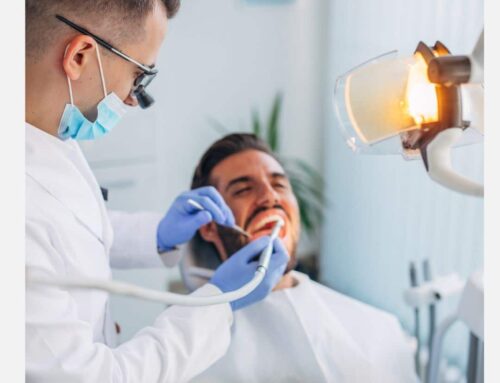Did you know that your oral health plays a crucial role in boosting your self confidence? Many people suffer from oral health issues for barious reasons, and it is an important area of your health to stay on top of.
Tooth extraction or tooth removal is one of the many ways that is used to treat various dental issues like severe tooth decay, crowded teeth, severe gum diseases, impacted teeth, fractured teeth and dental injuries.
We take a look at everything you need to know about tooth extraction.
What is Tooth Extraction?
Put simply, a tooth extraction is the process of completely removing the tooth from its socket. Extraction is often the only choice when your dentist is unable to save your tooth through other treatments like root canals, and it can help stop the spread of infection.
There are two types of extractions that dentists typically use. The first is is a simple extraction and the second is a surgical extraction.
A simple extraction involves a local anesthetic and your dentist will use an elevator and forceps for a tooth removal. When it comes to surgical extraction, the anesthesia used depends on the patient and the work being done. This extraction involves cutting the gum to remove the tooth.
When is Tooth Removal Recommended?
Of course, it is recommended to take care of your natural teeth through regular dental check-ups. Oral health is so important and there are many restorative methods available to save your natural teeth including fillings, crowns and in some cases, dental transplants. However, it is when restorative methods fail to work that you may need to remove a tooth to relieve pain and save your gums from damage.
It is important to consult with your dentist on the best options, however, some of the conditions in which it may be recommended for you to remove a tooth include:
- Cavities due to severe tooth decay
- You have crowded teeth and want your dentist to extract the extra ones to make space for other teeth
- Severe gum disease that may affect other teeth also
- An accident or dental injury that damages your gum
- The presence of an impacted tooth in your mouth
Tooth Extraction Preparation
Unfortunately, tooth removal isn’t always a straightforward process, and there is some preparation required before you undergo the procedure. Your dentist will review your medical and dental history, so having a list of medications you are currently taking, as well as any dental work you have had done in the past is helpful.
The dentist will organise an x-ray to check the length, shape, and position of the tooth to be removed. This will enable them to confirm and advise on the best removal method for the removal of any tooth, including wisdom teeth.
The anesthesia your dentist used will depend on how simple or complicated the tooth extraction is. For complicated removal of wisdom teeth, for example, it may be recommended that you receive general anesthesia, whereas a single tooth extraction may only require local anesthesia to numb the area. It’s important to check what type of anesthesia will be used prior to your procedure as you may need someone else to drive you home and stay with you.
Tooth extraction may be an important step in ensuring your oral health is the best it can be, minimising the risk of gum disease and other issues that stem from oral health diseases.
If you need tooth extraction in Brisbane in 2022, or are looking to seek a second opinion, call the team at Road Dental. Our professional and friendly team can help you with all your dental needs.








Leave a Comment